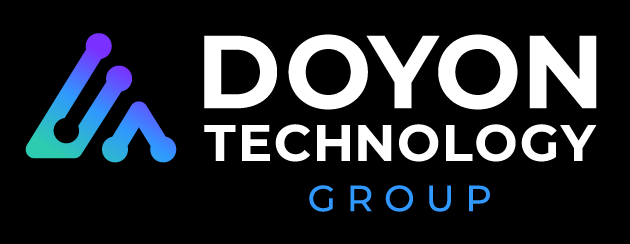We’re swimming in a sea of AI solutions and overnight experts, and it’s getting harder to distinguish transformative partnerships from empty promises. For leaders, separating signal from noise isn’t just an organizational priority – it’s survival. Every day we wait, the stakes get higher, the promises get louder, and the decisions get harder.
This practical framework gives you clear criteria for evaluating AI partners, including consultants, software vendors, and SaaS platforms. With these tools you can be confident in making informed decisions that will drive real organizational impact.
Tailored Solutions or Turnkey Tools
Finding an AI partner is a bit like dating in the age of apps. There are plenty of options, but finding the right match is tricky. Before diving into how to choose, let’s cover your two main paths.
Consultants are your strategic matchmakers. They understand your business, align AI solutions with your organization’s mission, and handle everything from custom development to full system integration. The best ones don’t just deliver what you ask; they challenge assumptions, spot opportunities, and close the gap between vision and results.
SaaS Providers are your speed-dating option. They are quick to start, easy to test, and ready to go right out of the box. Think Grammarly, ChatGPT, or Microsoft Copilot. These platforms leverage huge industry investments to deliver standardized solutions that solve common problems without extensive customization. They might not be custom-tailored, but they’re battle-tested and powerful.
Custom AI’s Big Shift: From Nice to Have to Need to Have
Custom software solutions once felt like luxury cars: expensive, high-maintenance, and only for deep pockets. Those days are gone. What once demanded massive investments, rare expertise, and nerves of steel is now less summiting Everest and more weekend hike. More accessible, more affordable, and quicker to deploy.
The democratization of AI capabilities isn’t just technical evolution; it’s fundamentally reshaping what’s possible for organizations of all sizes. This shift is especially challenging for niche SaaS providers. Their standardized, one-size-fits-most offerings struggle to address your specific organizational needs.
Look at Klarna, the poster child for AI integration. Their story isn’t about incremental improvement; it’s about dramatic transformation. By leveraging tailored, AI-driven software, Klarna turned a $244 million loss in 2023 into a $21 million profit in 2024.
AI isn’t just about personalization or competitive advantage. Klarna’s story shows that customized AI is now a fundamental driver of measurable business performance.
As a decision-maker, the questions have changed. Instead of evaluating whether a specialized SaaS vendor meets your needs, you’re facing deeper strategic choices:
- Can a standardized solution support your unique value proposition?
- How do dramatically lower software costs affect your build vs. buy decision?
- Is customization shifting from preference to strategic necessity?
- How will your technology evolve alongside your organization?
Custom AI isn’t just more attainable today; it’s increasingly becoming the smarter strategic bet.
But how do you find partners capable of delivering this transformation? The market is crowded with vendors claiming AI expertise, but there’s a clear difference between those who deliver and those who talk.
Beyond the Buzzwords: 5 Signs of a Genuine AI Partner (And How to Spot Pretenders)
In today’s AI gold rush, everyone’s selling shovels, but you need someone to help you dig. Every vendor promises revolutionary results, but here’s the truth: promises don’t build solutions, people do. Here are five signals that separate genuine expertise from well-marketed mediocrity:
1. Thought Leadership: Content Reveals Character
Skip the glossy brochure cover and examine the content. Anyone can claim expertise, but true thought leaders leave a distinct trail. They don’t just repeat industry jargon; they are shaping the conversations that matter.
Look For:
Start with their content pipeline. Real experts consistently publish insightful blog posts that engage with emerging trends (and yes, as I write this, I’m fully aware of the self-serving nature of the statement, but it’s true). They back up their expertise with case studies grounded in specific, measurable outcomes, not vague success stories. And they demonstrate commitment through books and authoritative publications that advance industry dialogue rather than repackaging common knowledge.
Why This Matters:
Content isn’t just content – it’s your crystal ball. It reveals how a partner thinks and communicates about AI today and how they’ll approach your challenges tomorrow. Clear thinkers make clear partners. Those who can translate complex ideas into actionable insights? They can help you navigate the AI landscape without losing you in the hype.
2. Domain Expertise: Context Changes Everything
Generic AI knowledge won’t cut it anymore. Sure, technical expertise matters, but understanding your specific industry matters more. The best partners don’t just understand your industry in theory. They’ve lived it, solved its unique challenges, and know the pitfalls.
Look For:
Start with proof of real-world experience. Look for sector-specific case studies highlighting measurable results in similar contexts. Find references from peer organizations who can validate their expertise firsthand.
Why This Matters:
Industry context isn’t just another checkbox on your evaluation form. It’s often the difference between smooth implementation and costly lessons. When a partner understands your unique pressures, compliance requirements, and operational quirks, they can anticipate problems before they emerge, and spot opportunities others might miss.
3. Balanced Capabilities: Technical Brilliance Meets Strategic Insight
Here’s a common trap: getting dazzled by technical wizardry or swept up in high-level strategy. The truth is you need both. Watch out for technical savants who can’t see past their code, or strategists who don’t understand the technology they’re recommending.
Look For:
Your ideal partner brings both technical depth and strategic vision to the table. They should field teams that can architect sophisticated solutions while keeping your business goals front and center. Pay attention to how they explain complex concepts. The best partners make complicated ideas clear without dumbing them down and challenge your assumptions when necessary.
Why This Matters:
Technical brilliance without strategic direction is just expensive tinkering. Strategy without technical depth leads to beautiful plans that fail in execution. You need a partner who can bridge this gap, turning technical capabilities into real business outcomes.
4. Proven Performance: Past Results Predict Future Success
Anyone can polish a sales pitch, but track records are harder to fake. Real partners have a history of delivering measurable results, not just compelling presentations.
Look For:
Start with the numbers. Ask for specific, quantifiable outcomes. Look for concrete metrics like efficiency gains, user adoption rates, or cost savings. Talk to their references and pay attention to how candid these conversations feel.
Why This Matters:
The hard truth about any technology implementation is that things rarely go as planned. That’s why a partner’s history of adapting and overcoming challenges matters more than a perfect track record. And don’t worry if their direct AI experience is limited. What matters is their ability to tackle complex technology projects and deliver results. The best predictor of future success isn’t PowerPoint mastery, but a history of actual delivery.
5. Adaptability: Tailored Solutions
Be wary of partners selling one-size-fits-all AI solutions. Your organization isn’t generic, and your AI solution shouldn’t be either. The best partners understand this fundamentally: they adapt their approach to fit you, not the other way around.
Look For:
Ask for specific examples of how they’ve customized solutions for other organizations. The best platforms offer flexibility through APIs, configurations, and integrations, allowing growth and adaptation. Watch how they respond to your unique requirements. Do they listen and adjust, or try to force your needs into their existing frameworks?
Why This Matters:
In AI implementation, rigidity is the enemy of success. Your business, like AI advances, isn’t static. You need a partner who can evolve alongside you, adjusting their approach as your needs change and new technology emerges. Adaptability isn’t just another feature, it’s the foundation.
Your AI Partner Evaluation Checklist
Finding the right AI partner isn’t about getting dazzled by demos or sweet-talked by salespeople. As you evaluate potential partners, look for these essential patterns of genuine expertise:
- Content that drives meaningful industry conversations
- Domain expertise that reduces risk and accelerates value
- Technical excellence grounded in strategic purpose
- A proven history of delivering measurable results
- Solutions that adapt to your unique organizational needs
Keep this checklist handy when evaluating potential partners. Remember: steak beats sizzle every time.
The Bottom Line: Making Your Choice Count
Finding the right AI partner isn’t simply a vendor decision. It’s about choosing someone to help shape your organization’s future. The best partners don’t just deliver technology; they help you spot opportunities, avoid expensive mistakes, and turn AI’s potential into reality.
Use these signals and red flags as your evaluation framework. Look for genuine expertise backed by real results. Watch for warning signs that separate actual capability from well-marketed mediocrity. Remember, you’re not just buying technology – you’re choosing a partner for your AI journey.
Here are a few practical steps to get you started:
- Evaluate multiple partners using these criteria. Good ones will welcome the scrutiny.
- Talk to their references, especially similar organizations.
- Start small. Test their capabilities and your compatibility with a pilot project.
The AI landscape is crowded with promises, but actual transformation requires more than flashy demos and polished pitches. Knowing what to look for – and what to avoid – can help you find partners capable of turning AI’s potential into your organization’s reality.
At Doyon Technology Group, we have AI consultants who can help you along your journey to a more productive future. Connect with us today at connect@doyontechgroup.com to get the conversation started.
––––––

About the Author
Greg Starling serves as the Head of Emerging Technology for Doyon Technology Group. He has been a thought leader for the past twenty years, focusing on technology trends, and has contributed to published articles in Forbes, Wired, Inc., Mashable, and Entrepreneur magazines. He holds multiple patents and has been twice named as Innovator of the Year by the Journal Record. Greg also runs one of the largest AI information communities worldwide.
Doyon Technology Group (DTG), a subsidiary of Doyon, Limited, was established in 2023 in Anchorage, Alaska to manage the Doyon portfolio of technology companies: Arctic Information Technology (Arctic IT®), Arctic IT Government Solutions, and designDATA. DTG companies offer a variety of technology services including managed services, cybersecurity, and professional software implementations and support for cloud business applications.

